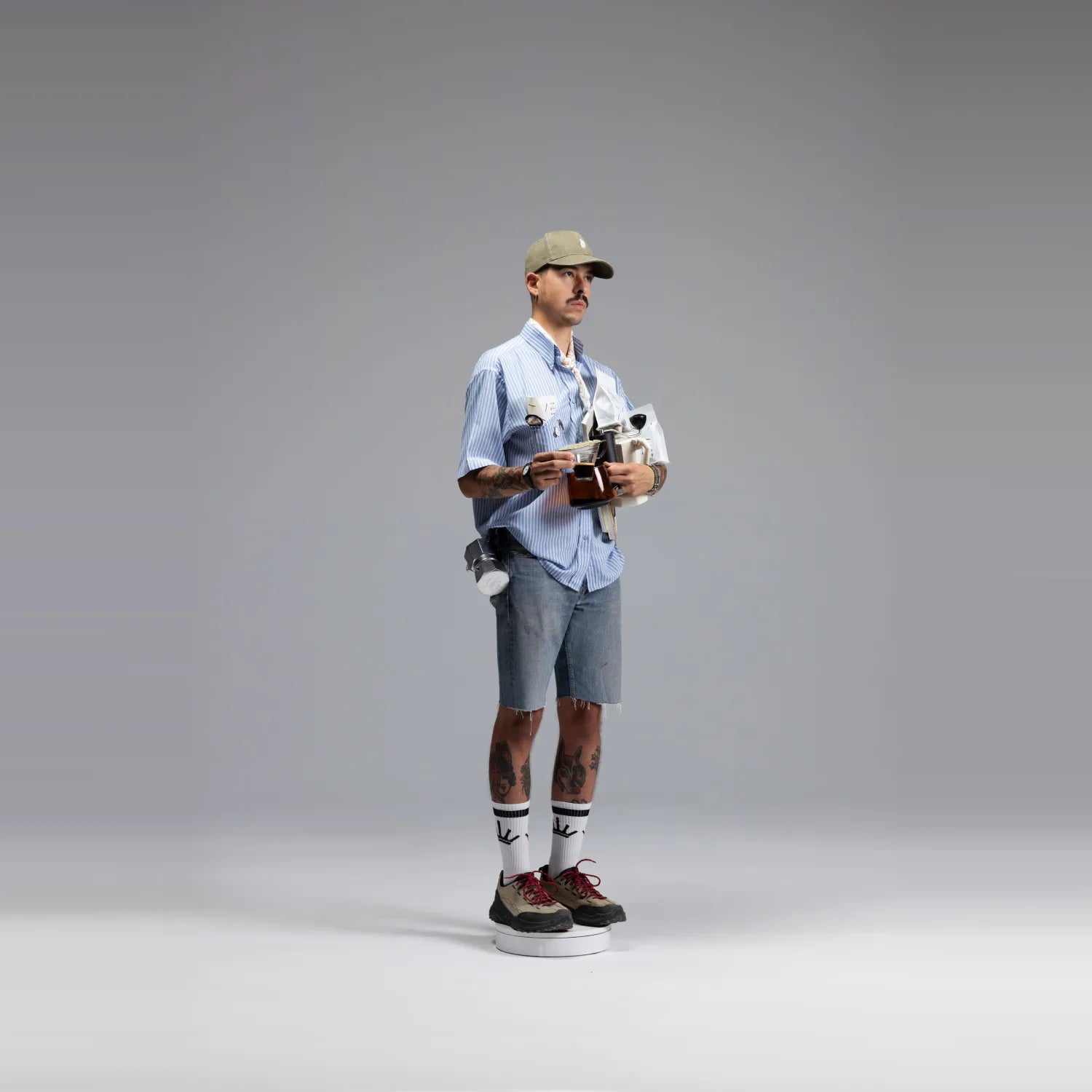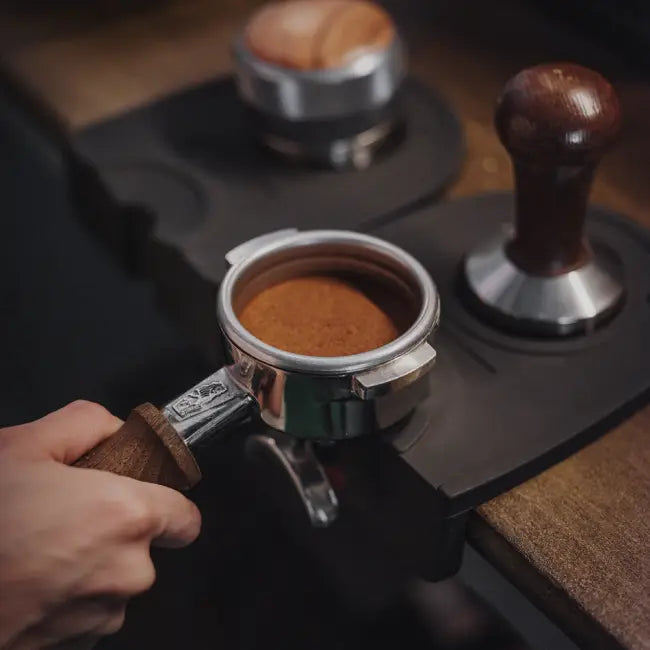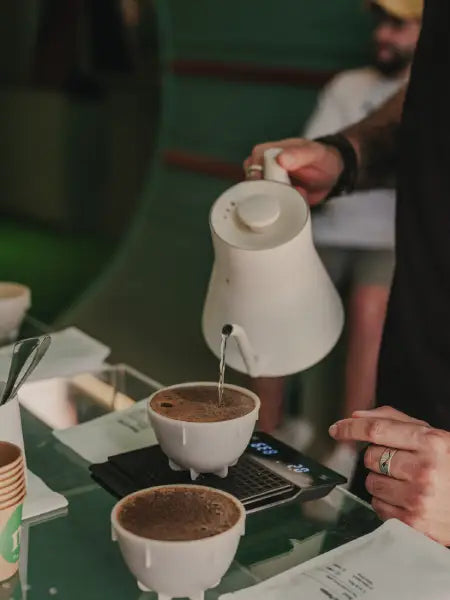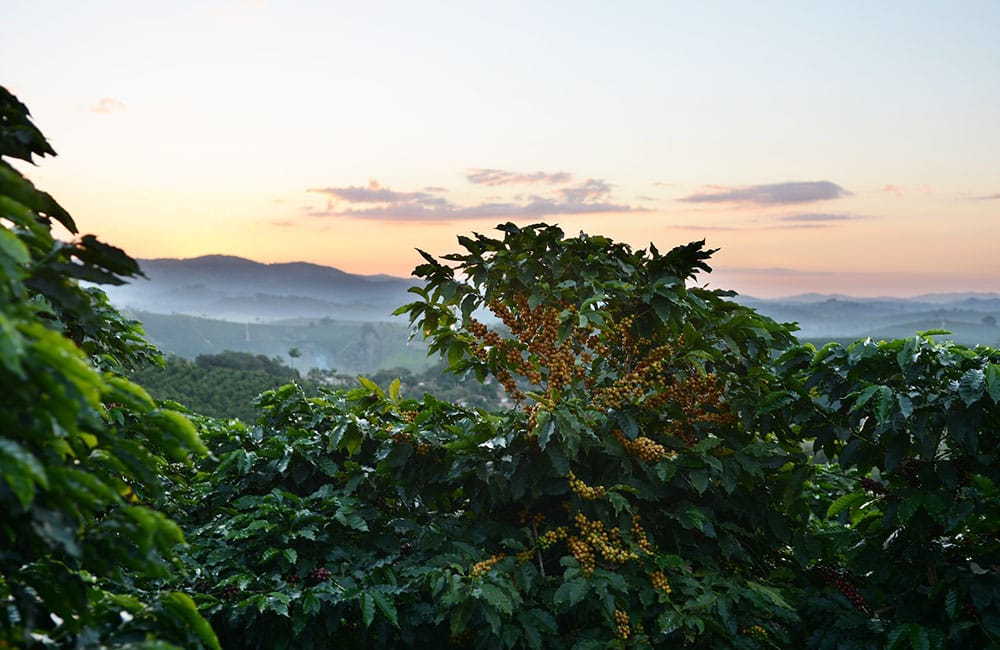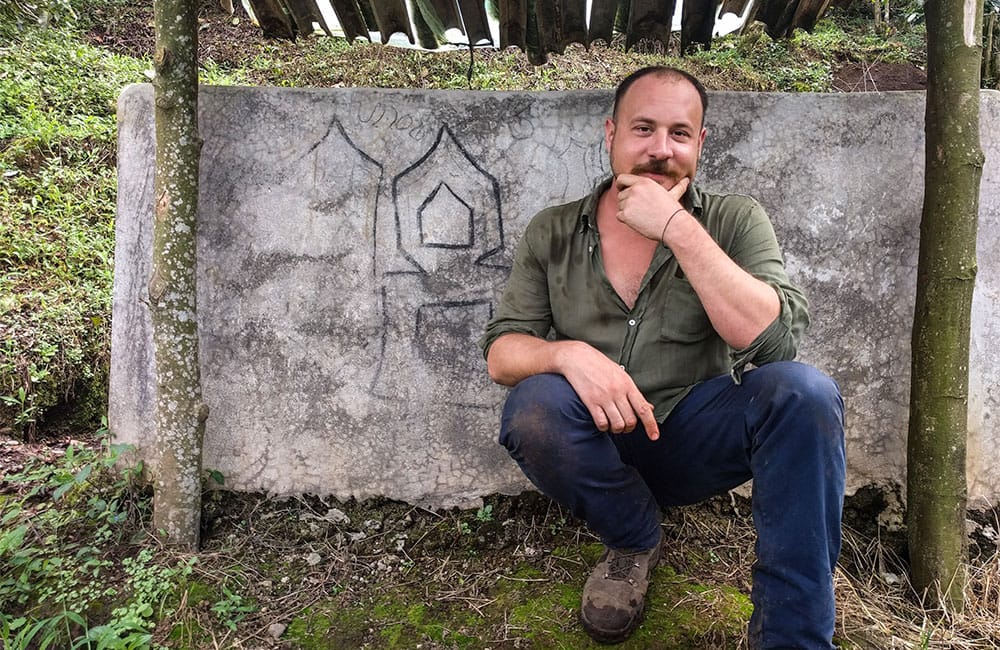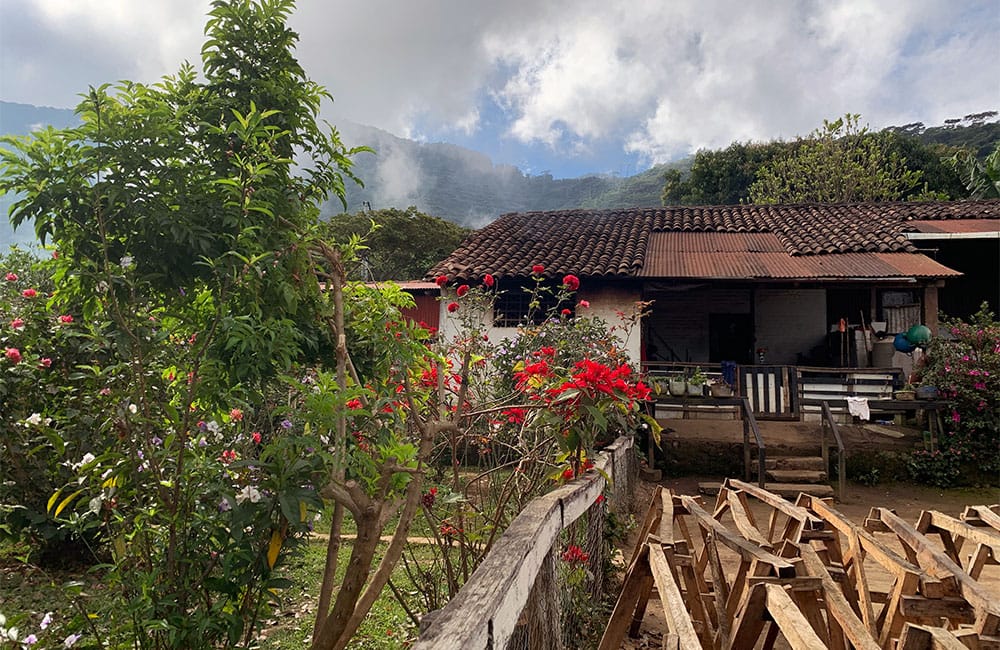Filtro & espresso
Chocolate blanco, pera, vainilla
| Volcán Santa Ana | |
| 1.650 msnm. | |
| Red Bourbon | |
| Anaeróbico Natural 48h. | |
| Jaime & William Catota |
Café anaeróbico de especialidad del Volcán de Santa Ana
Miramar y los "últimos mohicanos" del café
Miramar es el nombre de la granja de Jaime Catota y su hijo William en la región del famoso Volcán de Santa Ana [01], en Palo de Campana, El Salvador. La granja se encuentra sobre el lago Coatepeque a una altitud de 1.650 metros.
Jaime y su hijo William son los últimos de su familia que aún continúan cultivando café. Pero esto no siempre fue así.
Hace no mucho había muchos más Catotas que tenían sus propias plantaciones y se dedicaban al cultivo del café. Y no solo esta familia.

Pero debido a las condiciones impuestas por los mercados de café y los bajos precios, muchos han vendido sus granjas para ir a trabajar a la ciudad y otras han cambiado la plantación de café por una de maíz.
Jaime y William son de los pocos que quedan que aún mantienen su plantación de café y, gracias a su saber hacer, trabajo y dedicación, lo hacen de forma excelente y consiguen un gran café.
El comercio de café industrial y su reflejo en la economía local
Los Catota, al igual que muchos otros, llevaban su café a una gran planta de procesado.
Esta planta los financiaba con un alto interés, tomando la cosecha como aval, y luego les pagaba la cosecha a un precio por debajo del precio de producción, para abaratarlo.

Esto ponía a los Catota en una situación en la que su cosecha apenas llegaba para pagar los intereses y el préstamo, por lo que una vez entregada la cosecha tenían que volver a pedir otro.
De esta forma estaban en una espiral que les obligaba a vender a las grandes plantas de procesado a un bajo precio.




El impacto del café de especialidad y trato directo, en la economía de la zona
Esta situación no es única de Jaime y William, ni tampoco de El Salvador, sino que es algo bastante común en muchas regiones donde se cultiva café.
El café de especialidad no es solo una puntuación dada en cata, sino que es un concepto que significa mucho más.

Significa poner en valor toda la cadena de producción, desde el caficultor hasta la taza, donde todo el mundo reciba una recompensa acorde con su trabajo y que le permita una vida digna. Y sin caficultores no habría café.
Desde que comenzaron a tratar con plantas de procesado que se especializan en el café de especialidad, Jaime y William reciben financiación sin intereses y se les paga el doble del precio del C-Market.

Fermentación anaeróbica de 48 horas
Jaime y su hijo han comenzado a trabajar con Productor Coffee, una planta de procesado de café de especialidad a cargo de Rodolfo Ruffatti. Con ellos han desarrollado un café con una maceración corta de 48 horas.
El proceso de maceración, al que también se le llama de fermentación anaeróbica (puesto que se lleva a cabo en ausencia de oxígeno) consiste en dejar que las cerezas maceren en su propio jugo con agua durante un periodo de tiempo, en este caso 48 horas.

Esto hace que se potencien notas afrutadas. Luego se sigue un proceso “natural” normal y las cerezas se dejan secar en camas elevadas durante 3-4 semanas. De esta forma se puede conseguir un café muy equilibrado.
Referencias:
[01] Volcán de Santa Ana. Wikipedia
